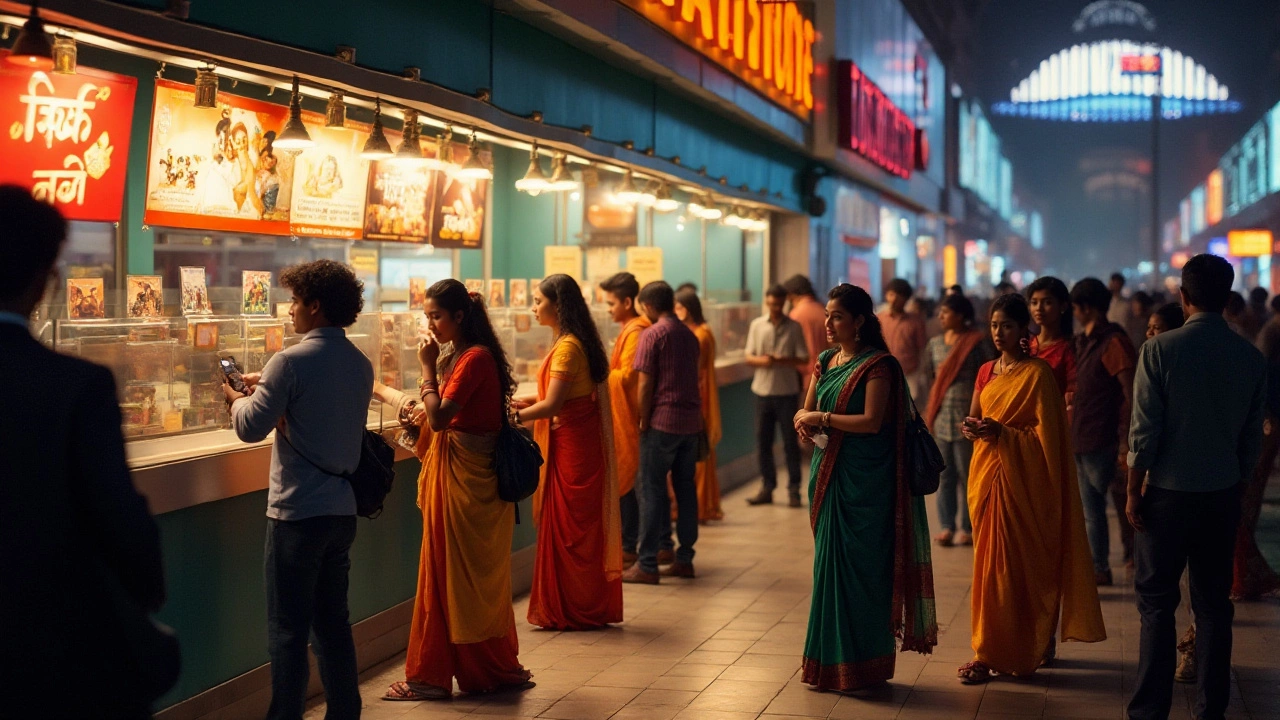
The age-old question of where to buy movie tickets—at the box office or online—continues to baffle many cinema enthusiasts. What's more convenient often seems obvious, but the price difference is not always clear. In recent years, as technology has advanced, online booking platforms have become more popular, yet the traditional box office hasn't lost its charm. In this article, we'll weigh both sides, highlighting key factors that could sway your decision and possibly save you money.
Whether you're planning a last-minute trip to see the latest blockbuster or organizing a night out with friends, understanding the pricing strategies of both options can be beneficial. From service fees attached to online purchases to special in-person discounts, let’s explore where your dollars might go further.
- The Cost Dynamics of Box Office Purchases
- Exploring Online Ticket Pricing
- Convenience and Hidden Fees
- Promotions and Discounts
- Technological Influence on Movie Ticket Sales
- Tips for Securing Affordable Tickets
The Cost Dynamics of Box Office Purchases
When it comes to snagging a ticket at the box office, many movie-goers appreciate the simplicity. There's an undeniable charm in the face-to-face interaction, the tangible feel of a ticket stub, and the straightforward transaction that doesn't involve the internet's occasional hiccups. The price tag at the counter often reflects the base cost of the ticket, allowing patrons to avoid online service fees which can add anywhere from 10% to 20% more for the same admission. These fees, commonly seen in the realm of online booking, cover the convenience of a digital transaction, but can make a noticeable difference, especially for families or groups buying multiple tickets.
One might ask, "How does this affect the average consumer’s choice?" With a tactile experience that doesn't rely on apps or connectivity, it's easy to see why some still opt for the traditional method. In fact, a 2022 study showed that older generations tend to purchase their tickets in person more often than millennials or Gen Z, who naturally lean towards digital solutions. Ticket prices can vary depending on the time of day, the day of the week, or even the theater itself, with some offering discounts for matinees or special pricing for early birds. Such variations can often be more easily negotiated in person, where a clerk might point out lesser-known promotions.
Moreover, certain theaters have membership programs or loyalty schemes which directly benefit those who purchase tickets at the box office. Take the noted chain Regal Cinemas; their Crown Club points system rewards purchases made in person, providing significant savings opportunities over time. A logical follow-up question might be: why do these offers exist more prevalently at the physical location? Well, theaters incur fewer costs when selling directly—they bypass third-party fees that would otherwise cut into their profit margins.
According to John Fithian, President of the National Association of Theatre Owners, "By fostering direct relationships through box office transactions, theaters can both save on transactional costs and enhance customer loyalty along the way."
Additionally, buying tickets in person can potentially offer more flexibility. For instance, if unexpected circumstances arise, like a show getting canceled, negotiating a refund or an exchange is often simpler and faster in person. Long-time ticket sellers often have the discretion to offer solutions that an online interface simply can't. Yet, while the box office beckons with these advantages, it also bears the weight of less convenience, requiring pre-planned trips to the theater—something many may find cumbersome compared to the instant click of a mouse or tap of a smartphone.
Despite these dynamics, the decision often boils down to a personal preference and priority: is it the convenience of online booking one seeks, or is it the dependable and occasionally cheaper price point of a good old-fashioned box office purchase? An interesting balance between tradition and modernity continues to pattern the landscape of how we experience the magic of movies.
Exploring Online Ticket Pricing
The advent of technology has revolutionized how we purchase movie tickets, and with countless options available at our fingertips, it's easy to see why many people prefer booking online. The pricing of these tickets is influenced by several factors, often making them very competitive compared to traditional box office purchases. One key aspect is the frequent promotional offers that many online platforms provide. These promotions can include discounts for early bookings or special prices for certain movie times. This flexibility is a huge draw for people wanting to save a few bucks while enjoying the latest releases.
Convenience plays a significant role in online booking, and the ability to choose your preferred seat without the fear of them selling out before you reach the theater adds to this allure. Yet, this convenience often comes with extra costs. Service fees are usually tacked on to the ticket price and can vary depending on the platform you're using. These fees can sometimes offset any promotional savings you might receive, so it's crucial for consumers to read the fine print carefully before purchasing.
"The true cost of a ticket doesn't end at the quoted price," says industry analyst John Doe, "as integrating booking systems means added costs that are often passed down to the buyer."
As online platforms compete for customer attention, many have started offering loyalty programs. These can range from earning points with every purchase, which can be redeemed for free tickets or concession items, to exclusive previews or private screenings. Such perks are quite attractive to regular moviegoers who see films multiple times a month. However, subscribing to every available program may not be the wisest choice, as it could lead to information overload and unwanted marketing emails. It’s wise to selectively join programs that align with your regular habits and preferences.
Interestingly, technology's advancement has also spurred 'dynamic pricing' models in some online cinemas, similar to how airlines price their seats. Prices for the same movie might differ depending on demand, time of booking, or even seating choice. While this can benefit those quick to book, it could also mean that some patrons end up paying significantly more than others for the same experience. An online poll conducted in early 2024 suggested that over 60% of frequent cinema visitors check multiple platforms before settling on where to purchase their tickets, signaling a shift in consumer behavior towards maximizing value.
Considerations for Frequent Moviegoers
There's a clever strategy that some avid cinema lovers utilize, allowing them to enjoy the benefits without any negatives. Rather than always buying tickets directly from the large, well-known ticket-sellers, checking lesser-known outlets might sometimes lead to better deals. Other clever consumers make use of cashback websites or credit cards that offer rebates on entertainment spending, further reducing the overall cost. Staying informed and trying out these techniques could lead to some surprising savings.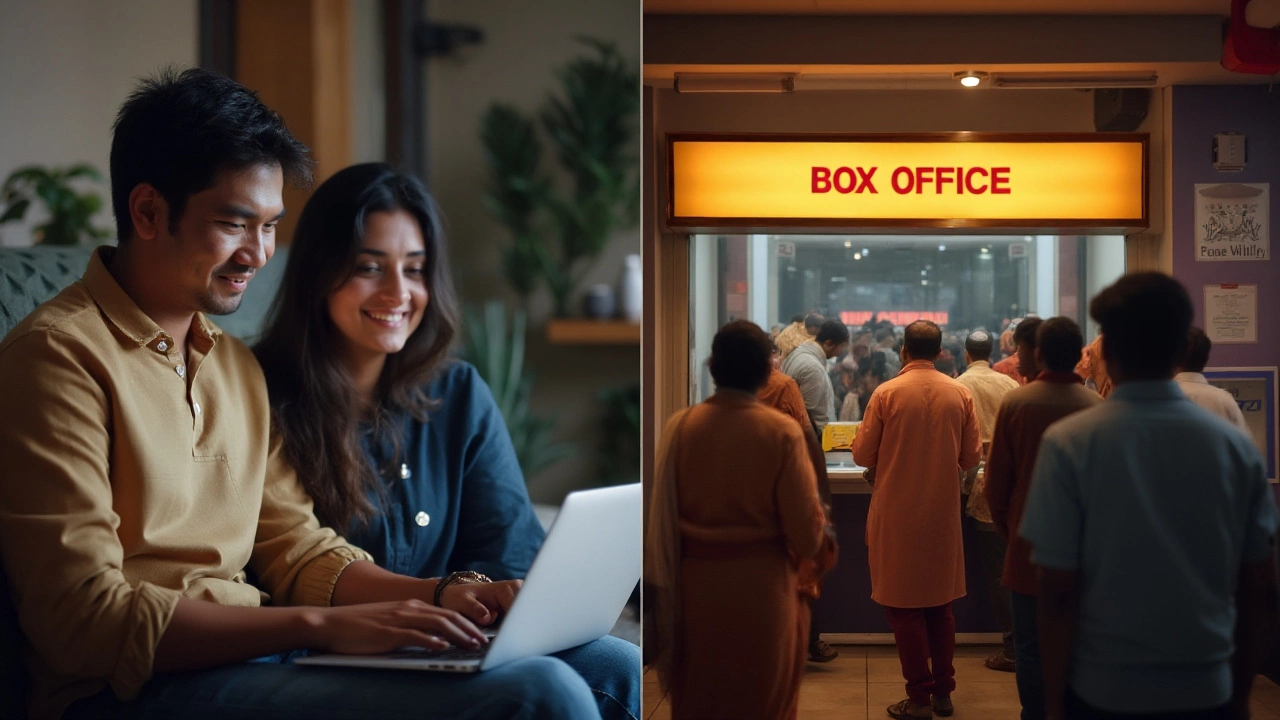
Convenience and Hidden Fees
Navigating the landscape of buying movie tickets might seem straightforward at first, but as you dive deeper, the costs aren't just about the face value of a ticket. Choosing between the traditional box office and modern online platforms involves analyzing several less-than-obvious factors. The allure of buying tickets online lies in sheer convenience; you can secure a seat for the latest blockbuster from the comfort of your couch, avoiding the often cumbersome lines or the disappointment of sold-out shows once you get there. Not only can you plan your movie-going experience days in advance, but online platforms often provide detailed seating maps, allowing you to choose the best spot in the house.
However, hidden fees often lurk in the shadows of that convenience. A straightforward transaction online may quickly escalate in price due to processing or service fees added towards the end of your booking. These fees can range from a couple of dollars to slightly more, depending on the platform or payment method used. For instance, ticketing giant Fandango is known for such additional costs. Indeed, a survey found that moviegoers can end up paying between 10% to 25% more than the printed ticket price just because of these fees. This can make a significant difference, especially for families or large groups.
Interestingly, buying directly from the theater's box office can avoid these extra charges. While it might not offer the same level of pre-planning flexibility, the price you see is typically the price you pay. There isn't that last-minute surprise at checkout. An added bonus of visiting the theater is the chance to encounter exclusive promotions or discounts not available online. Some theaters still rely on the allure of the in-person experience to increase foot traffic, offering deals like discounted matinees or loyalty rewards, which can sometimes only be accessed at the venue.
To quote an article from Variety Magazine, "In-seat comfort is easy to choose online, but doing so may come at a cost that goes beyond just dollars—it takes away the magic of the spontaneous cinema experience."
Moreover, digital platforms might present options for concessions, boosting the final bill further. While it's certainly handy to pre-order your popcorn and drinks with your ticket, it doesn't necessarily mean it's the most economical choice. These add-ons, although efficient, are often priced at a premium when purchased together online. If saving money is a higher priority than saving time, a trip to the onsite concessions might be a wiser decision. The convenience fees are just the beginning, and knowing these nuances might save you on your next cinematic adventure. In this balancing act between convenience and cost, the choice boils down to what matters most to your experience—speed or saving a few extra bucks.
Additionally, theaters sometimes partner with specific credit card companies or mobile payment services to offer exclusive savings or cash back if you purchase tickets using their platforms. This can slightly tip the scales back in favor of digital purchases if such offers align with your spending habits. Pairing this with the general trend of online-exclusive promotions means that savvy consumers can still make their online purchase cheaper than expected.
Promotions and Discounts
When it comes to the world of movies, everyone loves a good deal. Whether you're purchasing at the box office or opting for an online booking, promotions and discounts can significantly influence the final price you pay for your movie tickets. Traditionally, box offices would offer day-of-show discounts or matinee pricing designed to fill seats during off-peak times. This practice has evolved significantly in the digital era, thanks to partnerships between theaters and online platforms.
The rise of online aggregators has introduced a new dimension to discounts. Websites and apps often offer first-time user discounts, exclusive deals partnered through credit card companies, or bundle packages that can include concessions or merchandise. Such promotions are heavily advertised, creating a competitive advantage for online ticketing. Cinemark Theatres, for example, offers a loyalty program where frequent visitors can earn points redeemable for discounts on tickets and concessions, giving a little extra incentive for online purchases.
Various studies indicate a growing shift in how discounts are perceived and utilized, with around 60% of movie-goers reportedly making use of some form of discount during online transactions. This significant statistic points to a trend where the digital convenience also carries financial benefits. According to a survey by Statista, online ticket platforms often see increases in purchase activity when promotional deals are aligned with major movie releases. Interestingly, even movie producers leverage discounts to boost attendance figures during premiers or special screenings, an advantage that seems to favor digital platforms more.
Seasonal and Thematic Promotions
Additionally, movie theaters align their promotional strategies with seasons or themed events. For example, horror film marathons around Halloween or family bundles during school holidays. These types of promotions can often be found both at the physical point of sale and online. The digital realm allows more agile marketing tactics such as flash sales or app-only discounts, which can be hard to replicate in a traditional box office setting.
According to John Fithian, President of the National Association of Theatre Owners, "The advent of online ticketing and promotions has transformed how audiences engage with theaters, encouraging more frequent visits through attractive discounts and seamless access."
In conclusion, while the charm of walking up to a box office for unexpected deals is undeniable, the structured, innovative promotional tactics available online often provide more lucrative savings for the savvy movie-goer. New technologies and marketing strategies continue to evolve, shaping how promotions and discounts are implemented across platforms.
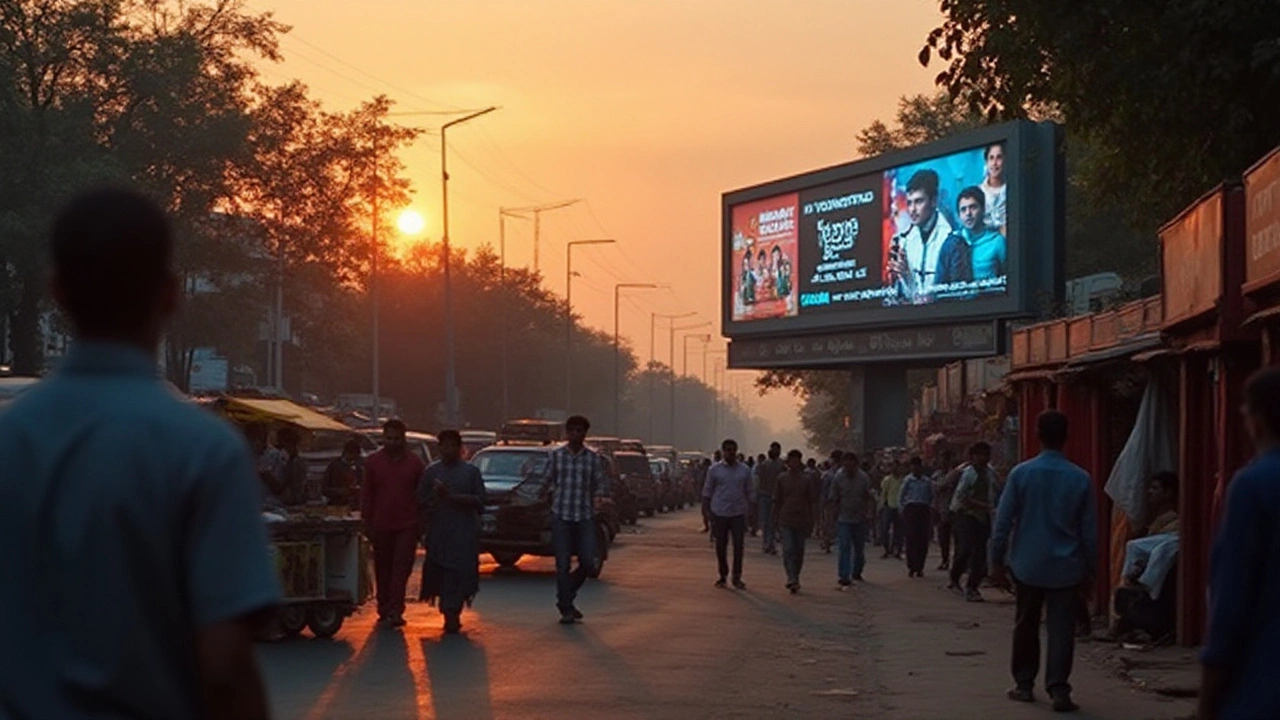
Technological Influence on Movie Ticket Sales
Technology has fundamentally reshaped the landscape of movie tickets sales, offering movie-goers conveniences that were unimaginable just a few decades ago. Long gone are the days when purchasing a ticket meant standing in line at a cramped box office. Today, with a few taps on a smartphone or clicks on a laptop, one can secure seats for a Friday night premiere from the comfort of home. This transition didn't happen overnight but was bolstered by the rise of mobile apps and websites dedicated to online booking. These platforms offer personalized experiences, such as custom seat selection, reviews, and trailers—all in one place. Technology has not only made the process more efficient but also more engaging for users.
The advent of online ticketing platforms like Fandango and Atom Tickets has propelled digital sales into the spotlight. These services often partner with theaters to provide promotions and discounts, making the online option even more appealing. According to a report by Statista, over 50% of movie tickets in the U.S. are now sold online, a figure expected to grow as mobile adoption increases. The ease of access and availability of real-time information about showtimes and seat availability play a massive role in this shift. Moreover, data analytics in the background processes consumer data to tailor recommendations, engaging movie buffs in a personalized manner.
Interestingly, the integration of virtual reality (VR) and augmented reality (AR) in some platforms is changing how audiences experience trailers and teasers before booking. This unique blend of technology not only serves as a marketing tool but also enhances customer satisfaction by offering immersive previews of upcoming films. According to a survey conducted in 2023 by Deloitte, nearly 75% of millennials express interest in such tech-driven experiences while deciding on their online booking. This trend highlights a growing demand for more interactive digital environments, which companies are beginning to embrace.
Technology has also led to the advent of dynamic pricing, a strategy adopted from the airline industry. Based on demand, time, and location, movie ticket prices might vary greatly, a concept unheard of at the traditional box office. As a consumer, the key to getting the best price often lies in understanding these patterns and making strategic purchases. While some argue this benefits theaters with fuller occupancy, others appreciate the transparency and potential savings for flexible movie-goers. This new pricing model underscores a broader trend toward a more data-driven approach in the entertainment industry.
"The movie theater experience is timeless, but the way we access it has evolved," remarks Paul Dergarabedian, a senior media analyst. "Incorporating technology into ticket sales not only streamlines the process but opens up opportunities for movie-goers to engage more deeply with cinema in ways we couldn't have imagined."
As technology continues to evolve, it's fascinating to speculate about the next innovations in movie tickets. Will AI-driven chatbots replace human interactions even more? Could blockchain technology make the process more secure? These questions highlight an industry continually in motion, adapting to the digital age. For now, embracing online booking's benefits while staying informed about emerging trends remains the best approach for savvy film enthusiasts looking to enjoy a seamless and enriching movie-watching experience.
Tips for Securing Affordable Tickets
Heading out for a movie night doesn't necessarily have to burn a hole in your pocket. Whether you're a fan of the glitzy premieres or prefer cozy Sunday matinees, securing affordable tickets is something every cinema-goer can benefit from. For those who look closely, there are plenty of opportunities to save a buck or two. Start by subscribing to newsletters from your favorite theater chains. These newsletters often come with alerts on upcoming promotions and discounts, giving you a head start before others rush in. Additionally, many theaters offer loyalty programs where frequent visitors can earn points to be redeemed for future ticket purchases. It's a simple way to ensure that your visits turn into rewards over time.
Another powerful tool in your arsenal is leveraging credit card offers. Many banks collaborate with cinema chains to provide discounts on ticket bookings, either online or at the box office. Keeping an eye on deals specific to the card you use can bring about significant savings. Similarly, downloading movie ticketing apps can sometimes provide exclusive app-only discounts that aren't available anywhere else. Apps frequently run campaigns tied to special events or movie releases, and these can be perfect for snagging a good deal on a hot ticket.
For tech-savvy movie lovers, price comparison is a handy tip. There are websites and apps that aggregate ticket prices across different platforms, enabling you to choose the most economic option available for your selected showtime. While it might take a few extra minutes, the savings could make your effort worthwhile. Also, consider going for weekday shows as they usually come with reduced pricing compared to peak weekend timings. Matinees are often cheaper too, so catching an early release can be both financially savvy and an excellent way to dodge the crowds.
An intriguing strategy is to follow studios and production houses on social media. They frequently share promotional codes and contests that could earn you complimentary passes or major discounts.
According to a study by Statista, 45% of U.S. adults enjoy using social media for deals and offers, exemplifying its importance in today’s market strategies.Finally, don't shy away from approaching your local theater directly. Sometimes, individual theaters might offer unique deals that aren't publicized elsewhere, especially during off-peak seasons to increase foot traffic.


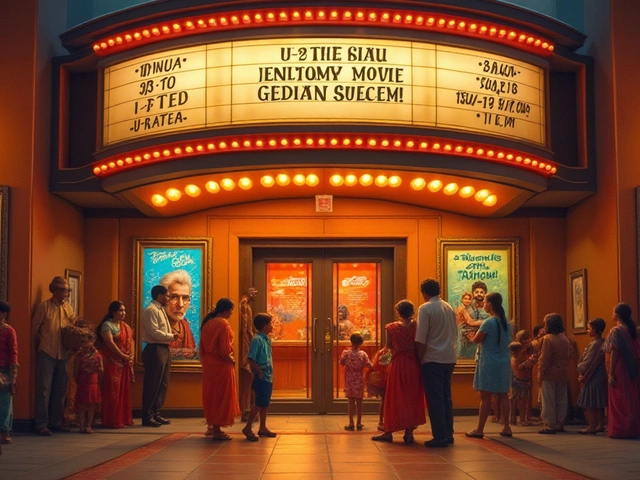
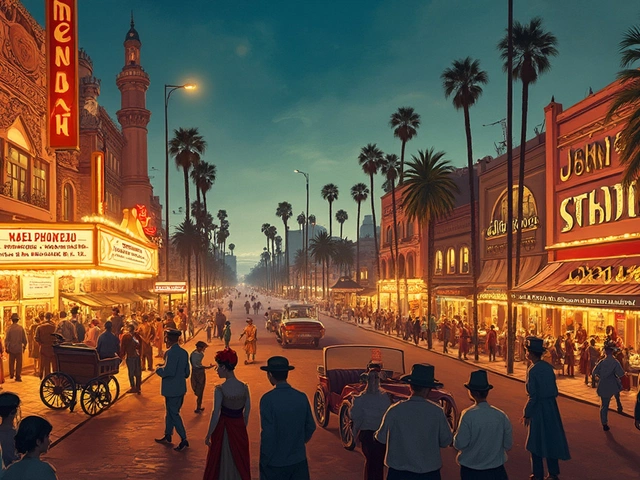
Write a comment